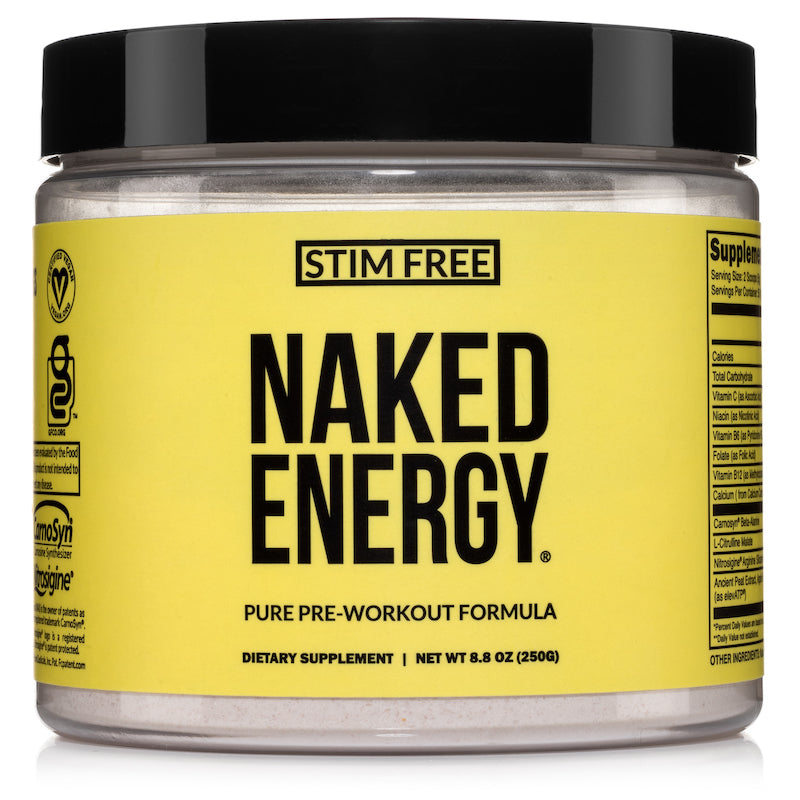Nitric oxide might sound like a scary artificial stimulant. But it's actually a natural compound, Humans naturally create nitric oxide in our bodies, and it is necessary for a number of aspects of everyday health.
Nitric oxide production plays a part in the immune system, nervous system, as well as heart health, brain health and exercise performance.
The main reason for this is how the nitric oxide pathway improves endothelial vasodilation - the widening of blood vessels - helping the cardiovascular system improve blood flow more freely around the human body.
With proper circulation, you can more effectively supply oxygen and nutrients to various parts of the body. So, nitric oxide is, in a sense, a signaling molecule that plays a part in nearly every organ in your body.
This is incredibly important for your health - low nitric oxide levels, or not having enough nitric oxide has been linked to a number of health conditions, including high blood pressure, heart disease, and diabetes.
There are so many ways to boost nitric oxide production in the body. In this article, we'll cover 6 of the most prominent ways you can increase nitric oxide production naturally.
6 Ways to Increase Nitric Oxide Naturally
There are a number of ways to safely and naturally increase nitric oxide production in the body. Whether you want to improve your overall health and wellness, lower blood pressure, or increase circulation to get a pump before working out, you'll want to take note.
Let's dive a little deeper into some natural nitric oxide enhancement strategies.
1 - Eat High-Nitrate Foods (Particularly Vegetables)

A lot of foods contain dietary nitrates, which the body can convert into nitric oxide with the help of the enzyme nitric oxide synthase.
Thus, eating these high-dietary nitrate food sources will help your body maintain higher nitric oxide levels, above what you normally produce.
There is a caveat, though. Nitrates are technically free radicals, and sodium nitrates from some sources - such as preservatives and processed meats - can form harmful compounds, which may lead to cancer.
The trick is to increase blood nitrate levels from the right foods, which contain additional vitamins and nutrients that stop nitrates from turning into something harmful. So the best way to get dietary nitrates is from vegetables.
Many vegetables, such as celery, beetroot, and spinach, are high in dietary nitrates. These vegetables are also rich in antioxidants like vitamin C, which prevent nitrates from doing harm to the body.
2 - Get Enough Antioxidants
Antioxidants are important for nitric oxide production for multiple reasons.
As we just mentioned, antioxidants counteract free radicals and stop nitrates from becoming the harmful compounds that cause cancer.
Antioxidants also help prevent the breakdown of nitric oxide in the bloodstream. The faster it breaks down, the more your body needs to produce nitric oxide to maintain healthy levels.
So it's a great idea to combine high-dietary nitrate vegetables with foods and supplements high in antioxidants. Some common antioxidants are vitamins C and E, glutathione, polyphenols, and resveratrol.
Along with antioxidant supplements, there are many food sources you can get antioxidants from. Some of the best include leafy greens, broccoli, carrots, beetroot, berries, beans, and coffee and tea.
3 - Exercise
Aside from increasing your dietary nitrate load, healthy adults can also increase nitric oxide levels with the help of exercise.
Nitric oxide can help exercise performance. But the benefits actually go both ways. Exercising can also help increase nitric oxide levels in the blood, which expand blood vessels, leading to increased blood flow and better exercise performance. Doesn't that get your blood pumping?
Studies have shown that moderate-intensity exercise, done long-term, can be beneficial for heart health and boost the production of nitric oxide.
Exercise enhances muscle growth and maintains healthy blood vessels and endothelial cells, which are responsible for the body's ability to create nitric oxide.
This may be due to the increase in healthy blood flow you get from exercise, as well as the fact that exercise increases antioxidant activity, which as we've already established, has positive effects on nitric oxide levels, which helps mitigate the risks of cardiovascular disease.
4 - Take Supplements that Boost Nitric Oxide

Dietary supplements can also help increase your nitric oxide levels. These supplements don't directly provide nitric oxide, but rather boost certain amino acid compounds that assist in the body's natural ability to produce more nitric oxide.
Two such compounds are L-arginine (or just arginine) and L-citrulline; both of which are amino acids, which play a part in nitric oxide production with the help of the enzyme nitric oxide synthase.
One compound, Nitrosigine, promotes the process of arginine and silicate bonding together to boost nitric oxide synthase activity.
Supplements like a stim free pre workout contain Nitrosigine arginine silicate, L-citrulline malate, and other clean circulation-boosting ingredients like ancient peat to boost nitric oxide levels for improved blood flow, energy, and focus.
5 - Use Mouthwash Less Often
Strangely enough, mouthwash may actually lead to less nitric oxide production in the body.
Mouthwash is designed to kill bacteria in the mouth, but that also includes certain forms of beneficial bacteria, which the body needs in order to produce nitric oxide.
These bacteria, or oral microbes, are killed off for around 12 hours after using mouthwash. Studies have actually shown that this can lead to a higher risk of diabetes, due to the effect on nitric oxide levels and its production.
Don't ignore oral hygiene, but be aware that using mouthwash more than once a day may not be the best for your health.
6 - Sauna
Finally, one of the many health benefits of saunas is an increase in nitric oxide.
A study showed that regular use of a Finnish sauna bath produced increases in nitric oxide levels.
The reason is likely because similar to dietary antioxidants, sauna use can help combat free radicals, and reduce the rate at which nitric oxide breaks up in your body.
What Foods Increase Nitric Oxide the Most?

The best way to boost nitric oxide is through healthy dietary choices. As we covered earlier, you can get nitric oxide enhancing nitrates from animal sources, but the healthiest sources are greens, fruits, and vegetables.
Eat more foods that lead to increases in nitric oxide - such as foods with a combination of nitrates and antioxidant vitamins.
Here are some foods (and drinks) that help boost nitric oxide:
- Beetroot
- Spinach
- Kale
- Broccoli
- Garlic
- Organ meats
- Fatty fish
- Citrus fruits
- Berries
- Pomegranate
- Nuts and seeds
- Dark chocolate
- Red wine
- Green/black tea
Is Nitric Oxide Good Pre Workout?
Along with general cardiovascular health, nitric oxide can help boost exercise performance.
Having high levels of nitric oxide can be beneficial pre-workout, in terms of increasing your performance capacity. The vasodilating effect it provides is the same “pump” that you get from many pre-workout supplements, which increases circulation and oxygen delivery to the muscles.
That’s why supplements like Stim Free Naked Energy use nitric oxide-boosting ingredients. These help boost blood flow prior to your workout, giving you an added pump and increased energy.

Summing Up
You might not be aware of nitric oxide, and how beneficial it is to the body. Many health conditions related to poor circulation and cardiovascular health, are linked to low levels of nitric oxide.
Combine that with the benefits nitric oxide has for exercise performance, and there’s more than enough reason for you to focus on boosting your levels.
Of course, you want to boost nitric oxide naturally, and without increasing harmful free radicals in the body. To do that, follow the tips we shared in this article.
Eat a lot of nitrate-rich vegetables and foods containing antioxidants. Try and use the sauna regularly, exercise, and take a dietary supplement, which deliver building blocks that help the body produce more nitric oxide.






